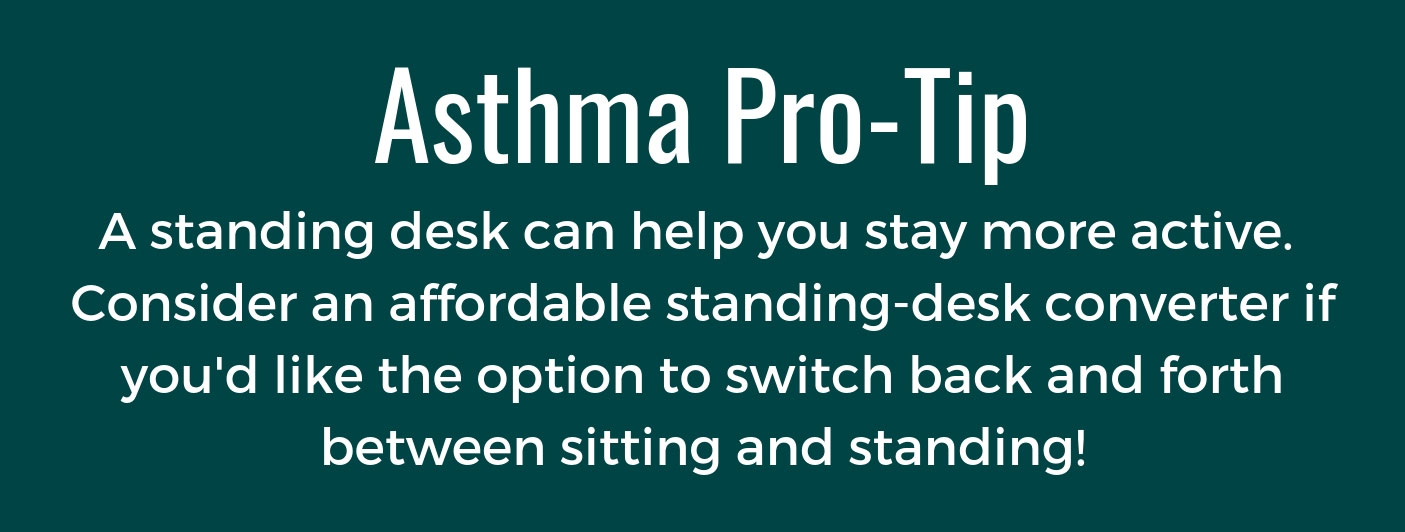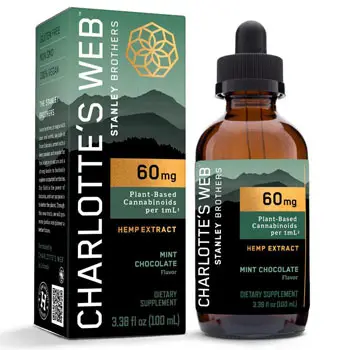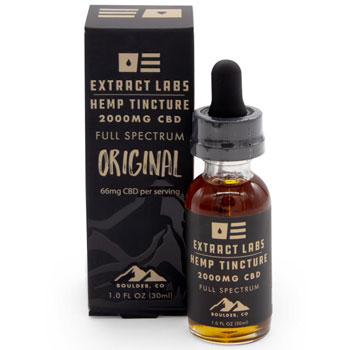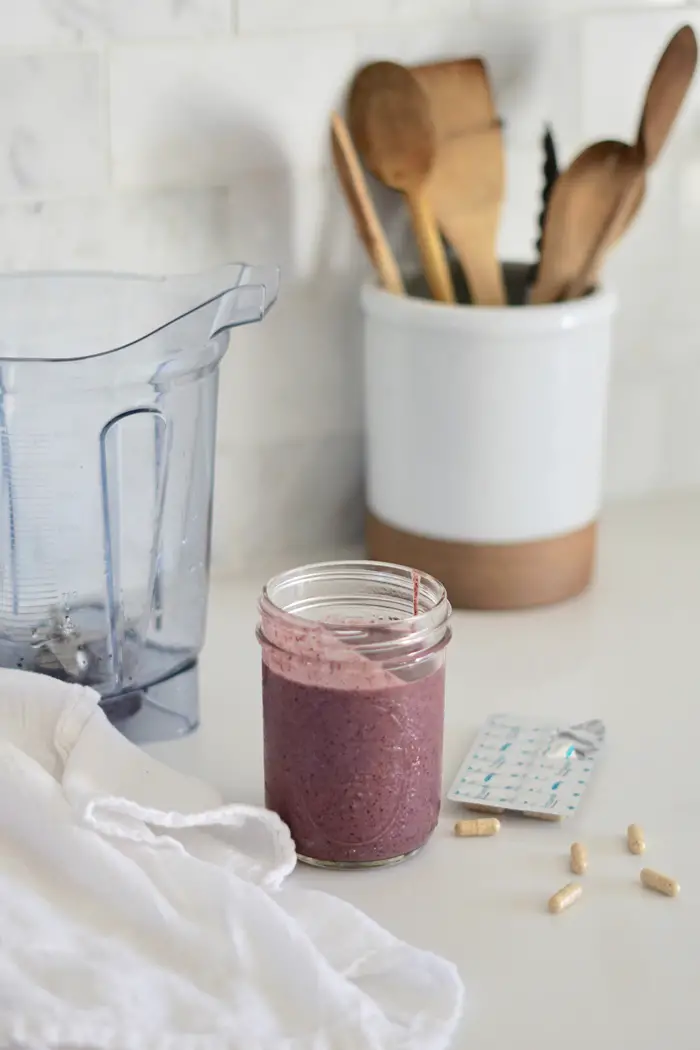6 Easy Steps To Stop Taking Rescue Puffers Naturally
Asthma sucks. If you have asthma, you probably want to stop taking albuterol or whatever rescue medication you use. Or you’d at least stop taking it as much as you do. We all want natural asthma relief.
In this article, I’ll go over the simple yet effective actions I’ve taken to quit my overreliance on albuterol.
I’m living proof – you can end the cycle and beat your over-reliance on ventolin and other expensive medications.
I’ll warn you – it’s not an overnight fix. You’re going to have to start being more proactive about your health. But if you stick to it, you will see results.
Ready to dive in? Jump to my 6 healthy strategies to stop taking your rescue puffer below.
First, here’s a little more about my journey with asthma. When you see how bad my asthma used to be, you’ll understand what a triumph it was for me to finally stop taking albuterol.
I’ve had asthma all my life. I remember all too well the days of prednisone, which my parents had to put in ice cream for me. And I’ve been carrying around a ventolin rescue inhaler with me everywhere I go since I was eight years old.
I could never leave the house without my puffer, because you never know when you might need it, especially as a young kid running around and getting into trouble.
And I don’t mean to vilify albuterol – it’s literally a life-saver. But it’s very problematic to use it too much like I did.
I have so many memories of feeling wheezy and pulling my inhaler out for a dose. Fellow asthmatics will know the indescribable relief of taking a puff of that sweet albuterol at just the right moment, feeling cool air finally enter your lungs
Few people, even doctors and those in the medical industry, can truly empathize with our struggle.
Only asthmatics know the real frustration and anguish of not being able to breathe. That’s why it’s so important that you take control of your health now in order to break your unhealthy reliance on powerful asthma medications.
More than 20 years later, I still keep my inhaler on me – and I probably always will. But these days, I only carry it in case of an emergency – not because I expect to need it.
My asthma inhaler is no longer the secret addiction in my pocket; that thing I need to take every 4-6 hours, before bed, in the middle of the night and first thing in the morning.
My puffer is now more of a reminder of what I’ve been through and why it’s so important to keep my body and my lungs healthy.
It wasn’t easy getting to this point, though. If you’re like me, you might have gone to doctors over the years trying to end your ventolin overuse, only to be given another, more expensive inhaler to try instead … and then you still need your inhaler anyways! It’s an ugly cycle.
Now I will say that it’s not easy to quit ventolin, especially if you are abusing it like I did.
Unlike other asthma sites, I’m not going to lie to you and tell you there’s one miracle cure like eating raw honey or taking a teaspoon of apple cider vinegar before bed (although it doesn’t hurt to try some home remedies for asthma as long as they’re good for your overall health, too).
(And note, I use ‘puffer,’ ‘inhaler,’ ‘ventolin’ and ‘albuterol’ interchangeably in this article. Asthmatics will understand!)
Instead, it was simple yet profound changes in my whole lifestyle that helped me stop taking albuterol.
Keep reading for the 5 specific steps that helped me toss aside my ventolin addiction for good.
1. Water
It goes without saying that everyone needs to stay hydrated, especially during the hot summer months.
But for asthmatics, staying properly hydrated can be the difference between phlegmy congestion and clear, effortless breathing.
While I love drinking tea for asthma (see Step #4!), tea, coffee and other beverages are not a substitute for plain, old fashioned water (that means soda and juice won’t cut it!)
Don’t worry exactly about a specific amount you should be drinking. I just keep it simple and drink as many cups of water as I can throughout the day, every day.
I don’t care about the exact number as long as I’m always refilling my cup. I also find that I’m snacking less in-between meals now that I drink more water, which is a nice bonus.
So the first, easiest step you can take to stop taking albuterol is to start drinking more.
But that might not be so easy, especially at the start. It’s tough to remember to drink when you’re not really thirsty, and the more frequent bathroom breaks can become a bit tedious too.
The game changer for me was getting a SodaStream. Since I love carbonated water, I feel more like I’m having a treat instead of just plain old water.
Plus, my SodaStream has the added benefit of helping me cut down on junk food too (as in, I haven’t had a soda in months!).
(And if you’re considering purchasing a Sodastream, please consider using our Amazon link, as this helps us keep providing free asthma-fighting tips, at no extra charge to you!).
So even if you’re sticking with free water right from your tap – please, drink up if you want to kick your albuterol addiction!
2. Diet
I love ice cream and pizza as much as the next guy, but junk food gives me acid reflux and phlegm that really triggers my asthma if consumed frequently – not good if you’re trying to stop reaching for your puffer.
Unfortunately, it took me a long time – years even – to recognize this connection.
I guess it’s just easy to keep eating like we did as children – even when that diet makes our asthma worse as adults.
To be fair, the connection between diet and asthma is a bit hard to make at first. It’s not like I’d have an asthma attack immediately after eating a scoop of ice cream.
Instead, poor food choices lead to a slow build up of phlegm and inflammation of the air passages that makes me more likely to have an asthma attack sometime later.
So you need to be mindful of what you eat and consider keeping a food journal to track your asthma symptoms and try to find triggers.
Unfortunately, you’ll probably find junk food is not kind to your lungs, and you’ll probably have to limit it to special occasions like I now do.
In addition to mindful eating, I follow basic good eating practices and the Mediterranean Diet as much as possible.
Nothing crazy – I just try to minimize junk and calories. And I try to maximize whole foods high in protein and low in refined sugars, flour and dairy.
I try to not get too stressed out about my diet. I’m only human – sometimes I’m going to want treats, and that’s ok. If I eat too much junk today, I use that as motivation to do better tomorrow.
But if you make the switch to healthier eating too, you’ll notice the difference when you cheat a little. On the rare occasions I do need my inhaler, it’s almost a guarantee I’ve eaten something junky earlier in the day. It’s a nice reminder of why I’m making these changes in the first place!
3. Exercise
Exercise is a huge piece of the asthma puzzle – but it took me years to understand this. If you’ve ever gotten wheezy after exercise like I have, then it’s easy to want to avoid the gym.
But if you want to beat asthma, you’re going to need to sweat.
I’m backed up by research here – the National Institute of Health in the US recommends healthy adults exercise for 30 minutes 5 days per week to promote healthy lung function. And in my experience, getting serious about exercise was a big factor in quitting my albuterol addiction.
Since exercise makes my asthma worse, I wanted something I could do in private, at home. The thought of wheezing in public at a sweaty gym was just too much.
So I ended up getting a set of dumbbells and a Concept2 rowing machine. Nothing too fancy or complicated – just some stuff to make it easier for me to wear myself out quicker than using body weight alone.
Today, I lift the weights until I’m tired and sweaty and then use the rowing machine until I’m more tired and sweaty.
I usually workout for about 20 minutes in the morning before I eat breakfast, and then do shorter intervals with things like chin ups and pushups all throughout the day.
But PLEASE don’t get discouraged when you’re starting out. If you have exercise-induced asthma, you might actually end up taking your inhaler more at the start – I did.
Don’t get stressed about taking your albuterol more when you first start – think about it as a long term investment.
Learn more about my journey with asthma and rowing here. And yes, rowing machines aren’t necessarily cheap (although the quality of mine can’t be beat).
But rowing is a complete body workout, so it replaces most gym machines. I figured that compared to a gym membership, and given that I row almost daily, it was worth it.
(I’ve also written this guide to the best rowing machines, all at different price points, if you’d like to find some great, cheaper alternatives).
Something else I highly recommend is a standing desk. I’ve used one for about two year. I work from home, and it’s made me way less sedentary by default, and that has been a world of difference for me and a key point of my anti-asthma strategy.
(Read more about how standing desks can help your health here. And don’t worry – studies show you won’t be less effective if you are standing!)
Today, my wife Emma and I both have nice standing desks that we got from Wayfair – they have lots of nice options, but they’re a bit pricier.

Before we were ready to completely commit to to standing desks, we started out with this standing desk converter, which is much more reasonably priced. It worked great and fits two monitors, and I recommend them fully – especially if you still want the option of using a sitting desk from time to time.
4. Tea
I love using tea for asthma management, and I believe it has helped me to stop taking albuterol.
These days, I always keep a thermos full of my favorite tea near my desk while I’m working. It helps me relax and I enjoy the taste (unless we’re talking about hard-working and super effective Throat-Coat tea, of course!).
More importantly, tea also helps keep asthma symptoms at bay. It’s no magic bullet, but combined with the rest of my healthy life changes, it’s a great and natural way to soothe your throat and open up your airways.
Make sure you’re drinking a tea that’s naturally low in caffeine if caffeine is one of your triggers. And I mostly try to stick to organic options.
Otherwise, try experimenting with teas you find tasty and enjoyable – you may find that the simple experience of having a soothing ritual each morning combats stress and helps you use your inhaler less.
(I also will sit and drink a cup of Breathe Easy tea if I feel the urge to take my inhaler … but I’ll get more into that in Step Number 5!)
And I have a few asthma tea recommendations of my own if you’re interested!
5. Conscious Breathing Strategies
Learning to breathe more consciously was one of the first things that showed me that I could start to control my asthma and stop taking albuterol so much.
If you’re in North America, you might not have heard of Buteyko before. ‘Buteyko’ refers to a system of breathing developed in the 20th century that attempts to address the symptoms and causes of asthma without medication.
It was one of the turning points in my asthma journey because it was the first thing I’d seen that suggested I try not using ventolin every single time I felt like it, instead letting my asthma symptoms pass naturally (and they give you tools to make this easier).
That first bit of asthma self-efficacy showed me that I can control how much albuterol I use – which started my whole ‘treat asthma at home’ journey.

Long story short, Buteyko emphasizes breathing more mindfully, through the nose, and avoiding hyperventilation as much as possible.
I learned that overbreathing and mouth breathing was really throwing my whole breathing cycle out of whack, as I learned, and fixing that was a huge part of getting my asthma under control.
So if you’re trying to stop taking albuterol, that can be as simple as, well, stopping taking albuterol!
The next time you need a puff, try to wait a bit longer than normal to take it – even if that’s for less than a minute. Stay calm, and see if the symptoms will pass. The next time, see if you can hold out for 30 seconds more – and so on.
You might surprise yourself with how quickly you start to make progress – and that is really empowering
(And your obvious health disclaimer here – be smart here. Don’t be a hero and wind up in the emergency room. Take your inhaler if you really need to take your inhaler).
You don’t need to buy into every aspect of Buteyko to benefit from it. I recommend using it for insights into how to breathe better as well as some great tips for stopping asthma attacks before they occur.
For example, it’s taught me how to unblock my nose without nasal spray, and this simple trick really helps me sleep better at night without needing my inhaler. Those are both pretty powerful
And know that if you really want to stop taking albuterol, you have the power to take control of your breathing. I promise.
Want to learn how to really apply simple Buteyko strategies so you can start to breathe better? This new book from renowned Buteko practitioner Patrick McKeown is a great read – one of my faves.
If you’re interested, please use our Amazon link to check it out. No extra charge to you, but we’ll get a small kick back which helps us keep our asthma blog going, so we can keep spreading the word about how easy it is to get real asthma relief!
6. CBD for Asthma – A Secret Weapon
When I first started my journey to taking less asthma medicine, I hadn’t heard of CBD, and it wasn’t available like it is today. I wish it had been.
That’s because nothing has had an impact on my symptoms like CBD has. Using all the strategies outlined on this page, I got myself to the point where I didn’t need to take my puffer. But I still had symptoms that would make me want to take it sometimes (which again, I’d learned to let pass).
But since I started taking CBD, I don’t get any of those symptoms anymore.
Asthma, of course, is a respiratory disease that makes breathing difficult by causing inflammation of the lungs and airways.
And CBD has been proven to help treat many types of asthma by reducing inflammation and relaxing the nervous system.
CBD is a natural compound found in hemp that’s been used medicinally for thousands of years to treat many conditions including asthma. And most people who read this blog will be able to get it now without a prescription, so it’s a great natural option to manage asthma symptoms for those with both moderate and severe asthma.
Since CBD is such a new product, people have a lot of questions about it I’m often asked about recommendations. The big thing to be careful about with CBD is that there are some unscrupulous companies out there selling CBD products that don’t actually have CBD – kind of a bummer.
So if you’re lucky enough to have a trustworthy distributor near you, I’d start there.
Otherwise, I recommend Direct Hemp, because they’re high quality, reasonably priced, and they do and report third party testing on all their products, so you know you’re getting a good products.
Use code ‘treatasthma’ for 10% off your entire purchase at Direct Hemp. This code does not expire.
Plus, readers of this blog can get a 10% discount when they use the coupon code ‘treatasthma,’ making this even easier to try (if you do get some, please let me know your experience!).
You can vape CBD, but most asthmatics will prefer to go for a tincture you ingest orally, or CBD isolate powder, which you can mix into drinks or also take orally. I go over more how to use these different products here.
As you can probably tell, I’m pretty excited about the prospect and ready availability of CBD now for my fellow asthmatics. Learn more about using CBD for asthma, including how and why it works and my current regimen here.
So there you have it – the six key life changes I used to successfully quit albuterol. Like I said, I’ll always keep an inhaler around for emergencies, but gone are the days of using it multiple times a day, every day.
These changes aren’t really quick fixes, so don’t get discouraged if you don’t master them all right away.
And you don’t have to do them all 100% perfectly, all the time, to start getting results.
And if you found this article helpful, please consider joining my mailing list. I’m trying to build a community of health-conscious and would-be health-conscious people with asthma – without the spam! You can sign up here.
Finally, please share with our asthma community in the comments … what home remedies for asthma worked for you? Any interesting experiences to share? We love hearing from readers so we can all help each other live (and breathe!) better!










My journey to living my life “free of ventolin” actually began by luckily finding you on the internet and then reading your article. i cannot exactly explain what happened – as I had been o d ing on ventolin – and was hugely fretting about the overuse and abuse of it and how to stop it – I must have connected to your article as immediately that day I completely ended my overuse and use of ventolin – once again I cannot exactly explain how or why this has happened but I’m very greatful for it and credit you and your article for kickstarting my life without ventolin – yes I pack my ventolin around with me but have not used it once since connecting with your article. My action plan follows all your suggestions as I work towards a month at a time being free of ventolin.
Mike, you have no idea how happy this comment makes us (not sure how we missed it earlier!). Congratulations on your hard work – hope it’s still going well!
(And you’re right – Nick always has his ventolin ‘just in case’ cause you never know … but so nice to never actually have to pull it out!)
Struggled with asthma since I was a kid, but then growing up in my teen years. It subsided and was almost gone. But in my 20s now and the environment my family resides really has it coming back. And i’ve honestly abused ventolin inhaler. I’m on a quest to break out. And breathe again
Thanks for reaching out, and best of luck on your journey! Take small steps and be kind to yourself 🙂
Hi
I just want to thank you. I love your website and I find the info here very useful. I come here again and again and always find something new info or something that speaks to me in a new way.
I have asthma because of a mold that was in our house (bathroom) for almost 11 years. I had asthma diagnosis last autumn – before that I have always been very healthy (and I never breath with my mouth – only nose. And I also have been vegan for six years). I have been on and off the asthma medications since then (I mostly use symbicort – something that I really hate). The eosinophils in my blood have also been too high, but high eosinophils status shows inflammation in the pulmonary bronchus (not everyone that have asthma have also high eosinophils status).
We finally got rid of the mold in the beginning of May. I thought my asthma would leave me at the same time but it did not. I think the mold spores went a little berserk when we attacked it. I also know it will take time for my lungs to heal after the mold (which was black mold – very toxic type of mold) and I have to be patient. But all the tips on your website have been very helpful. I would like to add that eating a very low fat diet has help me the most (but it’s hard to keep eating like that every day). Medical Medium says that it’s crucial to lower your fat intake if you are dealing with asthma. It has something to to with the mucus. Anyways, thank you again for great website.
Sending you love and light from Iceland.
Jóhanna
Hi Johanna!
Thank you for such a nice message. I’m really happy that this website has been useful for you.
I think it’s great that you’re taking your asthma diagnosis seriously. Don’t stress too much about taking medicine, there’s nothing wrong with it. It takes time to heal from what asthma can do to your lungs, as you know.
Best of luck with your asthma journey. I can see you’re already on the right path. Feel free to get in touch any time.
Cheers,
Nick